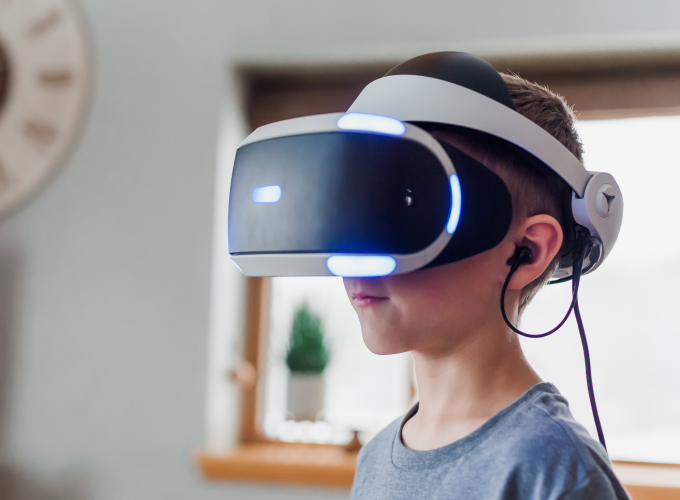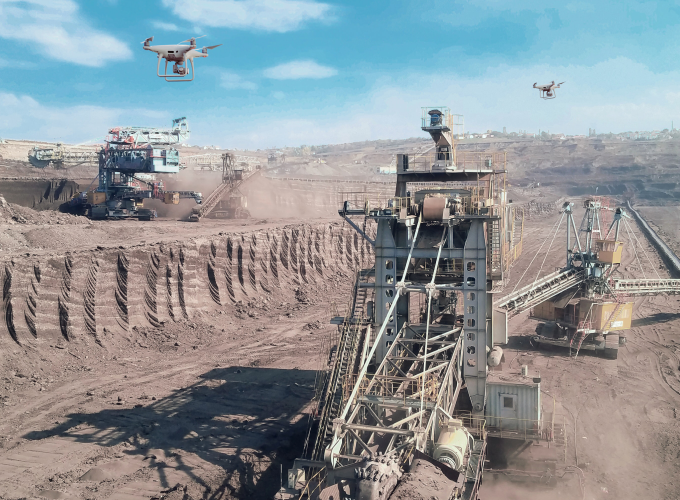Education technology (EdTech) is evolving and changing to fit the learner of the modern world. With the use of augmented and virtual reality, educators can create a memorable and immersive learning experience. Are we at the doorstep of forever changing the way we teach and learn?
AR & VR
Each year, Augmented reality is getting more and more attention with large companies and startups creating new ideas on how to implement AR in business processes. One field where AR can disrupt the industry is education. According to Statista, the global educational AR market share is $300 million as of 2020, but it’s expected to grow up to $700 million by 2025.
Virtual reality immerses the user in a completely fictitious 3D reality, while augmented reality creates a mixture of physical environment and digital construct. Unlike VR, AR does not block the real environment, but rather overlays it with a digital projection.
With AR apps, college students can use it to refine and gain new skills and knowledge they already possess. This technology allows students to visit far-flung places, conduct experiments, communicate with historical figures and conduct research. It makes learning more accessible for students with skills they need in the real world.
AR presents endless opportunities to Early Childhood Development, as children are being born into a digital society. For example, AR can bring worksheets or flashcards to life. It can illustrate static images ‘magically’ while simplifying and visualizing complex concepts, making them easier to understand. A flower bud on a printed page could slowly bloom in AR.
However, this can create challenges for teachers and parents because of a lack of quality content, limited time and support in the classroom to install, integrate, support and get up to speed. Affordability is also a factor.
When used in medical education, the understanding of anatomical structures and physiological mechanisms seems to have significant advantages.
Likewise, VR is ideal for training in hands-on medical procedures. The recent technological advances in haptics, display systems, and motion detection allow the user to have a realistic and interactive experience.
The Best AR Apps for Education:
- Experience Real History
- Curiscope
- Pocket Tutor
- Chemistry 101 AR
- 4D Anatomy
Human ingenuity knows no bounds, and augmented reality is precisely the technology we need to bring education to a higher level of effectiveness and engagement around the world.
Online courses
The COVID-19 pandemic has changed education forever. With schools and universities closed, online learning platforms have surged. Whether it is language apps, virtual tutoring, video conferencing tools, or online learning software. Although it was rapid and unplanned, it forced people to adapt to technology quicker than they would have.
It is no surprise that the overall market for online education will reach $350 Billion by 2025.
Many companies are focusing on using technology to drive positive change in education. Take Appello Software as an example, they developed a global marketplace for online courses and education for Vidya. The app allows amateur content creators to easily upload video and PDF courses to sell online.
Appello also worked with the Australian government in New South Wales to build a High Skills Training Portal. It a portal for expert construction training and certifications.
Another example is Tej Samani, the founder of Performance Learning, who has helped thousands of learners boost their exam and classroom performance through its machine learning platform. The digital platform accurately predicts, monitors and tests learner performance with a core focus on mental health and attitudes and behaviour towards learning.The Organisation for Economic Co-operation and Development (OECD) estimates that over the next 10 to 20 years, “14 percent of jobs are at high risk of being fully automated, while another 32 percent at risk of significant change”.
More than ever, students will need the ability to continue learning and upskill themselves throughout their lives. Technology provides a way to show students a wider range of opportunities. It is therefore crucial that education systems adapt to ensure it equips students with the right skills to survive in our changing world.



